Agroecology Building Community Resilience Amid Climate Crisis in Latin America & the Caribbean
In 2024, communities across Haiti, Honduras, Guatemala, Ecuador, and Mexico endured a convergence of crises. Climate extremes collided with social, economic, and political instability, threatening lives and deepening the fragility of rural livelihoods across Latin America and the Caribbean.
Climate change is no longer a distant threat but a daily reality. Droughts, floods, heatwaves, and storms are hitting harder and more often. In Honduras, communities endured unprecedented heat in 2024, which fueled crop failures, worsened pest and disease outbreaks, and increased production costs for farmers already operating with limited resources. Tropical storm Sara, which struck in November 2024, damaged key crops like corn, beans (frijol), and rice, while also destroying infrastructure.
Guatemala suffered from rainfall irregularities tied to El Niño, with 56% of producers reporting insufficient water for irrigation and 60% delaying planting according to this State of the Climate in Latin America and the Caribbean report. The Ministry of Agriculture estimated 50% of crop losses in maize and beans across 642,000 hectares in key departments. Farmers experienced drastic income losses, and 10% of farming households saw at least one member migrate.
Haiti was struck by climate shocks on top of a worsening humanitarian crisis. Nearly half the population faced acute food insecurity (IPC Phase 3 or higher) in 2024, and flooding in the south affected over 116,000 people, wiping out crops and livestock.
Ecuador saw its worst drought in 60 years, which affected hydroelectric dams, resulting in blackouts lasting as long as 14 hours a day over the course of several weeks. The country has also been enduring a grave insecurity crisis related to organized crime, further affecting communities’ well-being.
Mexico and Guatemala experienced erratic rainfall, particularly during the critical primera planting season. This disrupted maize production, a dietary staple for millions, and worsened food insecurity. Dengue outbreaks driven by climate variability further strained health systems. Storms, floods, and landslides caused hundreds of deaths and billions of dollars in damages across the region.
The climate emergency is a lived reality for the communities we support. While contributing the least to the global climate crisis, rural and Indigenous communities in the Global South are among the most vulnerable to its impacts. In this context, locally grounded solutions like agroecology are essential to help communities anticipate, withstand, and adapt to climate disruption. At the same time, the strategies they develop can offer vital guidance for other parts of the world—especially Western countries—now confronting similar challenges.
In 2024, Groundswell International’s partners worked with thousands of farmers in Latin America & the Caribbean to deepen agroecological practices, protect natural resources, support farmers’ and their families’ well-being, and build resilience. Here’s how this movement is sowing change across the region.
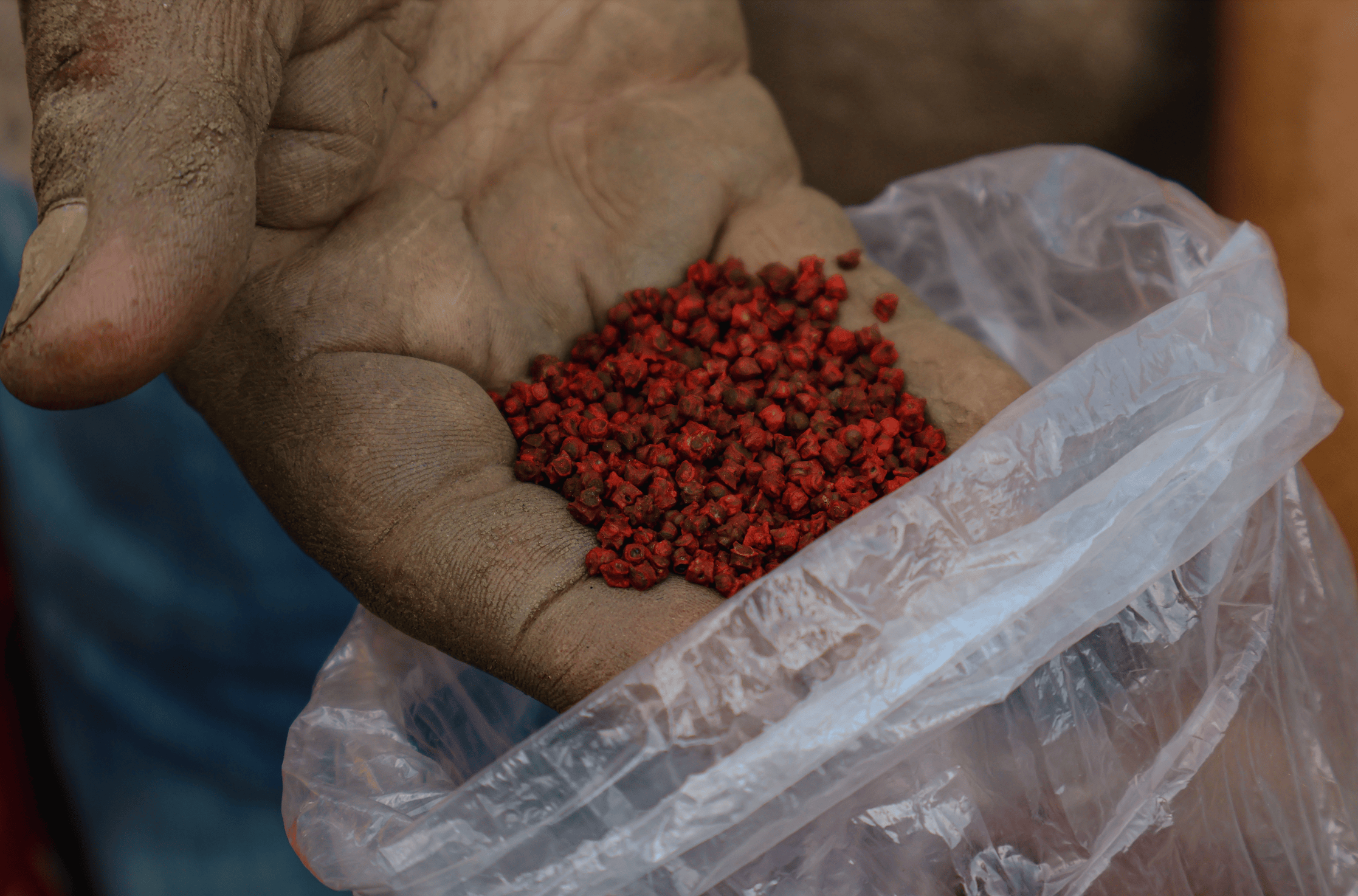
Reviving Soils, Regenerating Land
Across our program areas, farmers are restoring degraded soils and regenerating their landscapes through agroecological practices, improving food production and climate resilience. In 2024, over 700 farming households applied agroecological methods across more than 4,000 hectares of land.
With support from our local partners, farmers experimented with homemade fertilizers, natural pest control, and cover crops to retain moisture and reduce erosion during the dry season, cutting reliance on chemical inputs.
In Honduras, our partner ACESH helped farmers produce three bio-fertilizers, which showed promising results: fields stayed free of pests and were visibly healthier. Farmers are now analyzing costs and comparing performance with chemical inputs to inform future practices. Soil analyses and trainings on beneficial insects helped farmers better understand and care for their local ecosystems.
In Mexico, our partner Centéotl established four new community centers for producing bio-inputs, making it easier for local farmers to access and scale agroecological practices. In Guatemala, AGRIDIVI helped community groups start tree nurseries for coffee beans and fruit trees on sloped plots with up to 50% gradient, trialing a model for protecting areas susceptible to landslides.
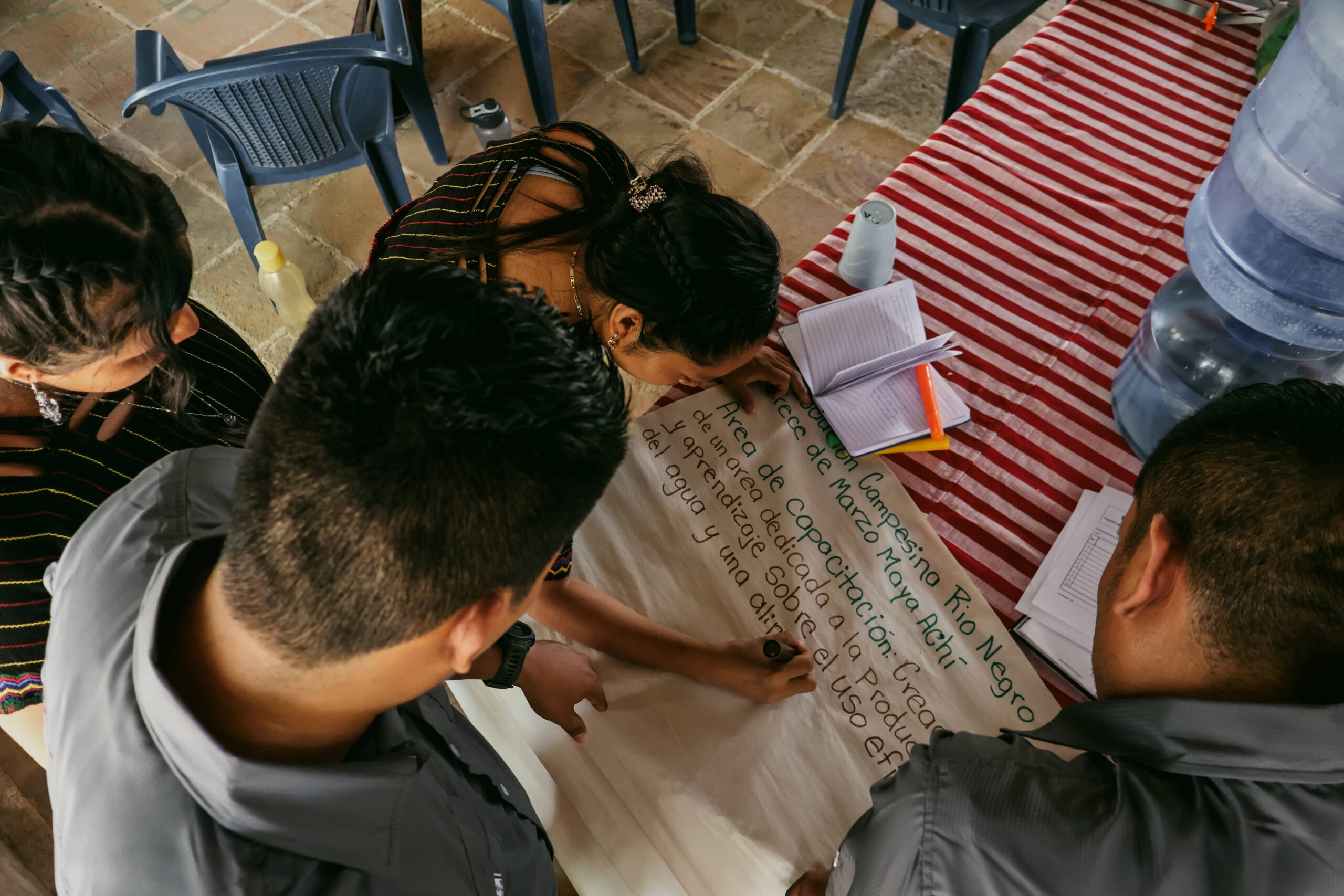
Protecting Seeds, Defending Food Sovereignty
In 2024, farmers across the region expanded seed-saving efforts to protect biodiversity and resist the spread of commercial seeds. Industrial seeds often depend on chemical inputs and are poorly adapted to local conditions. In contrast, native and creole seeds carry generations of ecological memory, cultural significance, and adaptability to drought, pests, and unpredictable weather.
In Mexico, our partner Centéotl, in partnership with the Universidad Autónoma Chapingo, distributed a rare, multipurpose bean seed known locally as Conchita, azulejo, and Zapatista de la Reina — prized for its nutritional, medicinal, and cultural value.
In Honduras, Vecinos Honduras and ACESH co-organized a farmer exchange across 12 communities, focusing on native seed protection, land and forest conservation, and civic engagement. ACESH secured a municipal declaration recognizing native seeds as local cultural patrimony.
Across Latin America and the Caribbean, communities established 14 new seed and grain reserves, safeguarding over 200,000 pounds of climate-resilient seed varieties. These reserves reduce dependence on external aid and give farmers control over what they plant, eat, and preserve for future generations. This ability to define their own agricultural practices — without relying on corporations or external aid — is the foundation of food sovereignty.
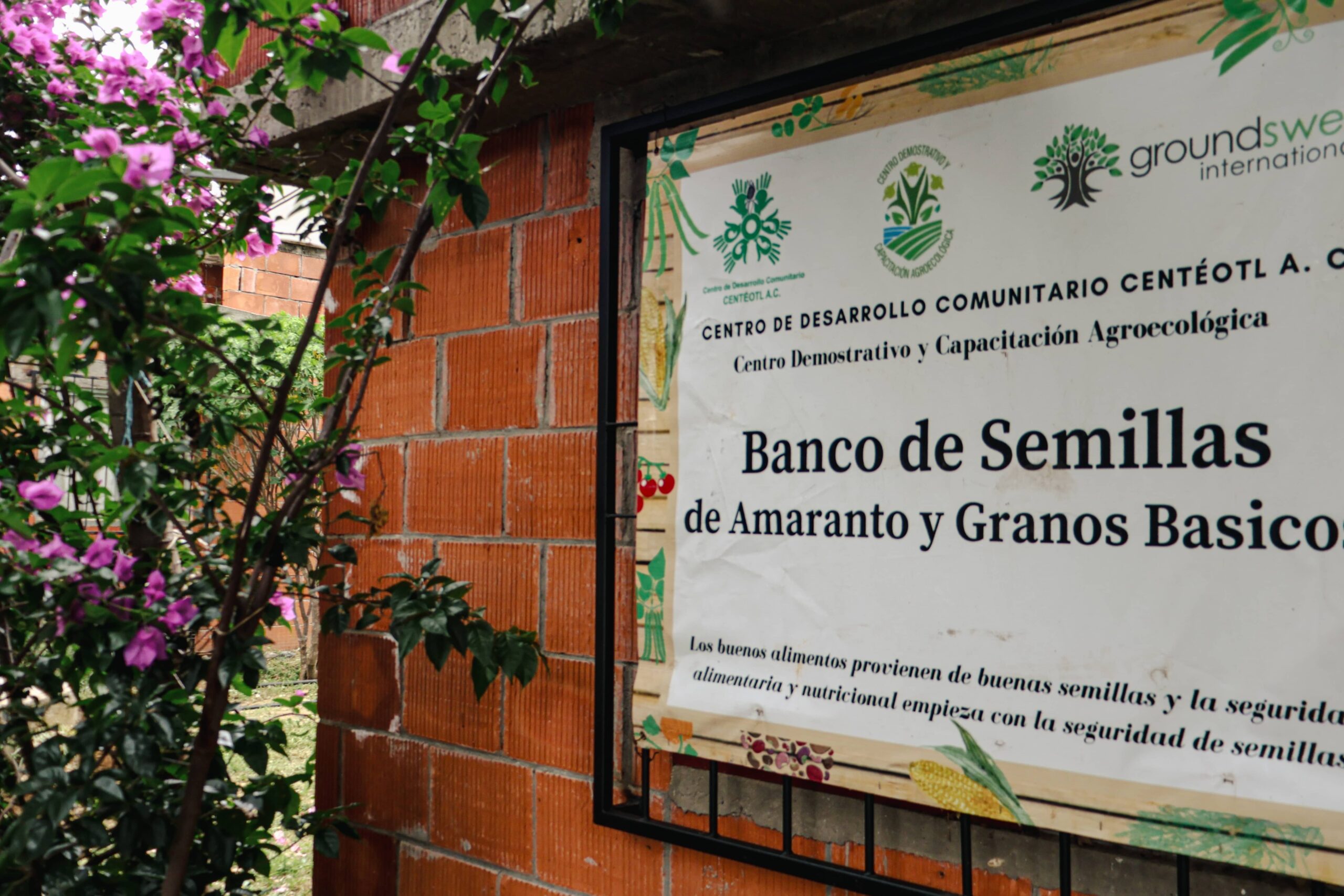
Women Leading Local Economies
Agroecology in the region is embedded in women’s leadership. In 2024, nearly 7,000 women played central roles in seed saving, soil regeneration, health initiatives, and economic development.
In Guatemala and Haiti, women formed saving groups and started micro-enterprises to build financial independence. From traditional medicine gardens and herbal products to toasted grains and textile cooperatives, women are increasing household incomes and reshaping local economies. In 2024 alone:
- 4,513 women participated in savings and credit groups across the region.
- In Haiti, 766 women and 131 youth received micro-loans to grow their businesses.
- In Guatemala, mother guides helped other women establish medicinal plant gardens, supporting families in areas with limited access to healthcare and helping youth reconnect with ancestral knowledge. Mother guide Dilvia Juárez Alvarado shares: “I feel happy with everything about being a mother guide and being able to teach mothers how to consume herbs in different ways, as well as how to grow my own medicinal plants. This is because there is no longer any need to go to the pharmacy, which is not good because it contains chemicals. Here, on the other hand, it is natural and healthier.”
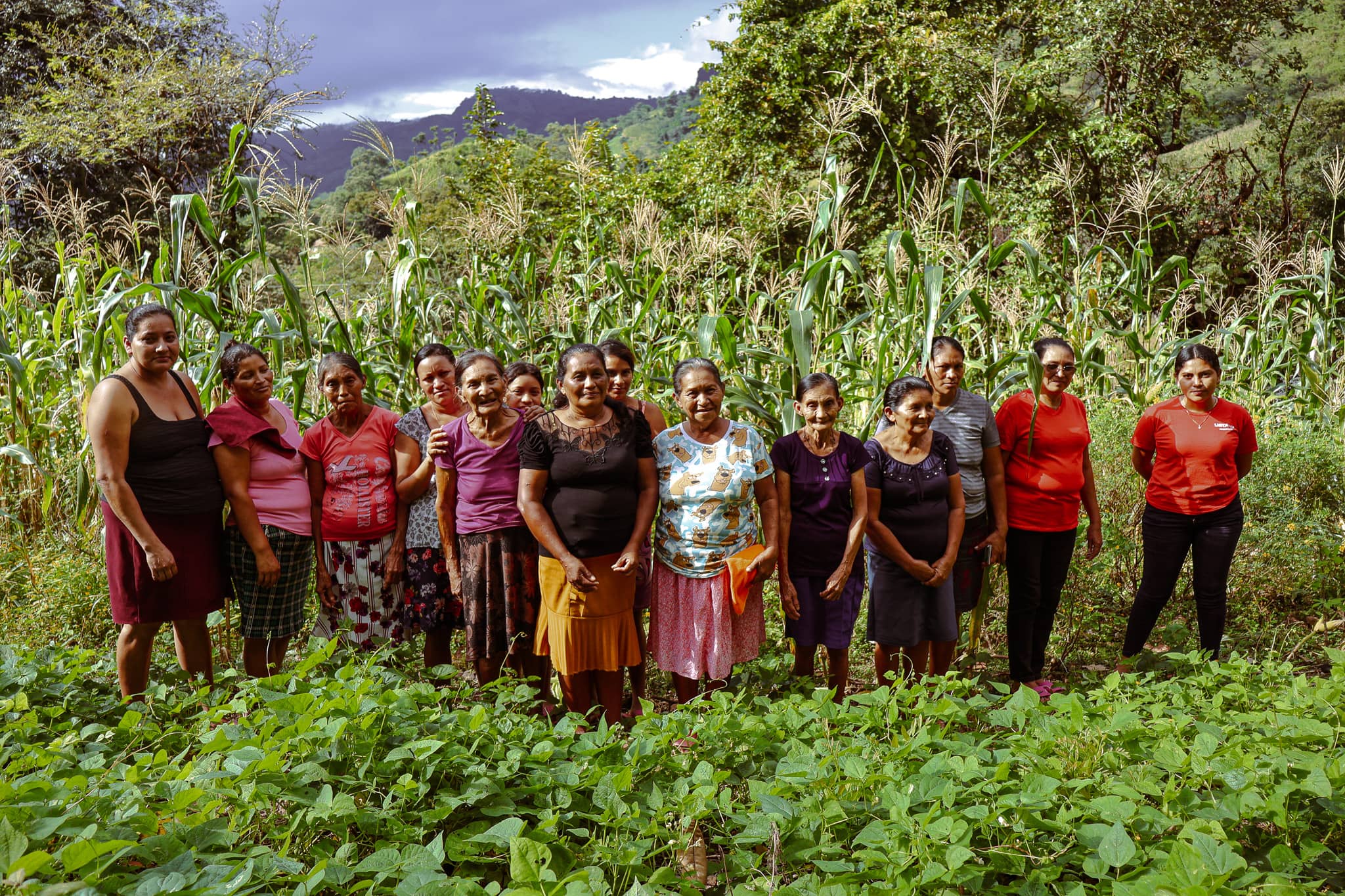
Nourishing Families, Strengthening Health
Improving diets and community health is a growing focus of agroecology work across the region. In 2024, local organizations combined traditional knowledge and agroecological practices to improve nutrition, especially among women and children.
In Mexico, Centéotl’s school garden programs taught students how to prepare juices, soups, and other dishes with local, nutritious crops like amaranth. Families learned the nutritional value of traditional foods and how to grow them at home.
In Guatemala, Qachuu Aloom organized healthy cooking workshops and nutrition fairs to promote healthy, local traditional food and balanced diets.
In Haiti, PDL trained community members on dietary diversity, and dozens of health promoters received specialized nutrition training to spread learnings.
Youth Cultivating Stories and Futures
The Youth Storyteller program empowered over 100 young people from five countries to capture and share their communities’ agroecological knowledge through video, art, theater, poetry, and photography. Their stories spotlighted issues like seed saving, water conservation, carbon fixation, home gardens, and climate adaptation, inspiring dialogue and leadership among peers.
In Ecuador, youth practiced non-verbal communication and community theater, connecting with elders and local producers to amplify collective knowledge. In Mexico, young people led public education campaigns on the benefits of amaranth—a traditional, highly nutritious seed—promoting its use in school gardens and home kitchens.
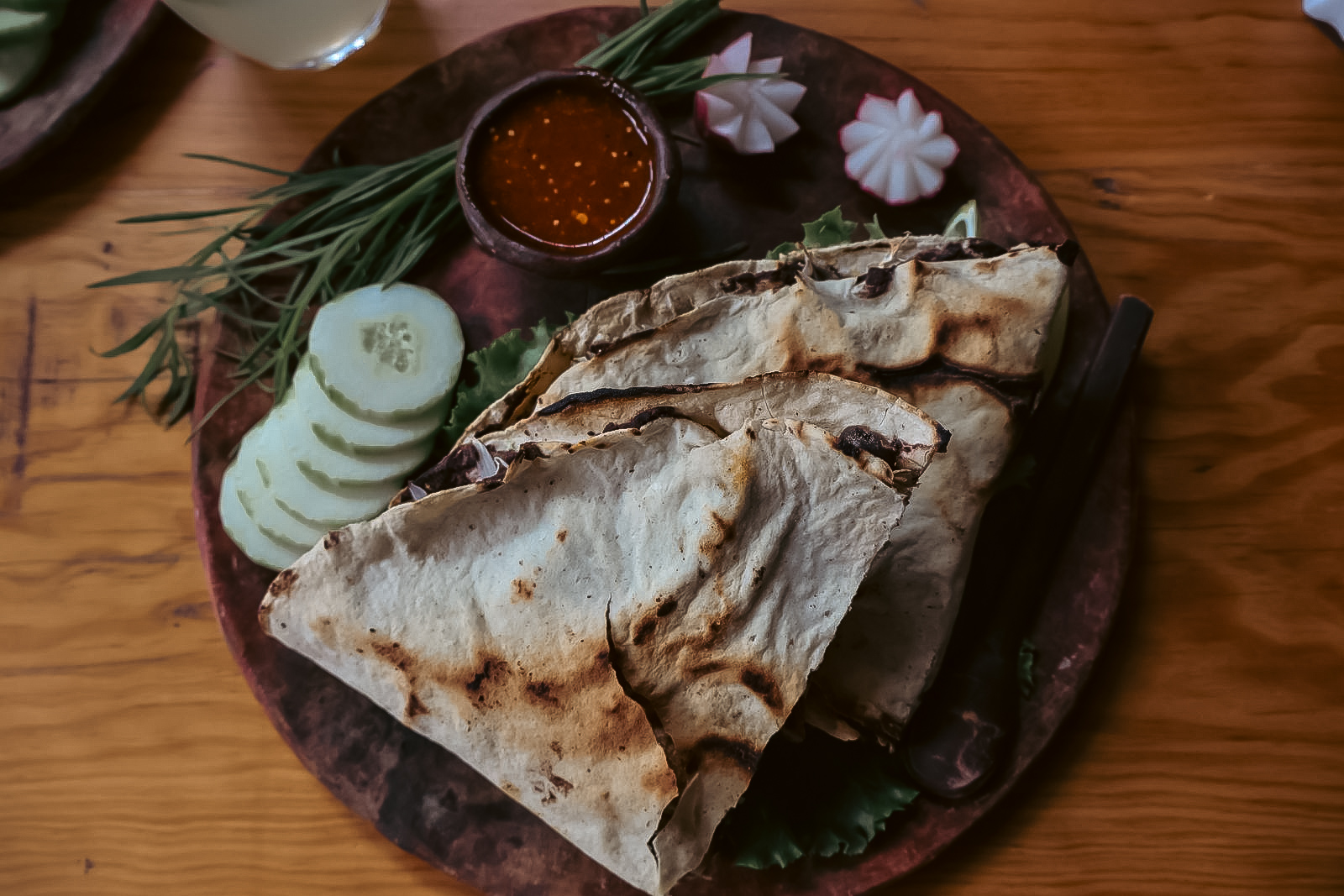
Defending Territories and Natural Resources
In Honduras, where mining, logging, and other extractive industries threaten land and water, our partners continued to organize communities to defend their territories. This year, groups from 12 municipalities gathered to exchange strategies and advocate for policy changes, from recognizing native seeds as municipal heritage to improving local participation in environmental governance.
These grassroots alliances, built on solidarity, knowledge sharing, and community organizing, are critical for protecting forests, water sources, and the rights of rural people.
Your Support at Work
Every donor dollar in 2024 reached communities to solve problems they identified: restoring soils, safeguarding seeds, raising income, uplifting women and youth, and protecting land. The outcomes above have translated to more secure harvests, safer drinking water, healthier families, and stronger local economies. Together, we helped improve the livelihoods of nearly 100,000 people through community-led agroecology.
Thanks to your support, Groundswell International and our partners are growing a regional movement rooted in justice, ecology, and community care. Donate today to keep helping farming families across the Global South to create food systems that nourish people and the planet, now and for generations to come.
To learn more about our 2024 impact, read our Annual Report.

